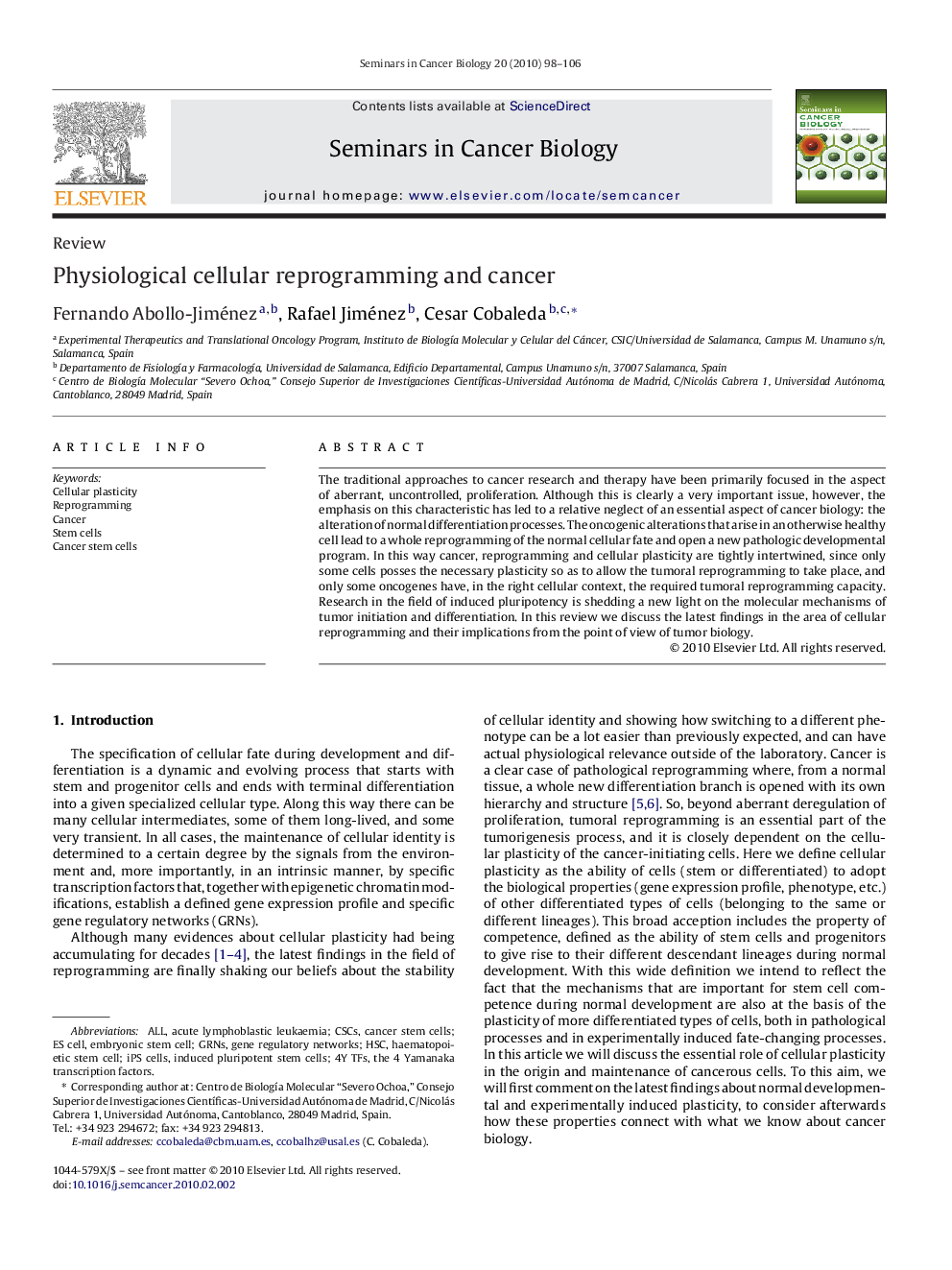| Article ID | Journal | Published Year | Pages | File Type |
|---|---|---|---|---|
| 2023900 | Seminars in Cancer Biology | 2010 | 9 Pages |
Abstract
The traditional approaches to cancer research and therapy have been primarily focused in the aspect of aberrant, uncontrolled, proliferation. Although this is clearly a very important issue, however, the emphasis on this characteristic has led to a relative neglect of an essential aspect of cancer biology: the alteration of normal differentiation processes. The oncogenic alterations that arise in an otherwise healthy cell lead to a whole reprogramming of the normal cellular fate and open a new pathologic developmental program. In this way cancer, reprogramming and cellular plasticity are tightly intertwined, since only some cells posses the necessary plasticity so as to allow the tumoral reprogramming to take place, and only some oncogenes have, in the right cellular context, the required tumoral reprogramming capacity. Research in the field of induced pluripotency is shedding a new light on the molecular mechanisms of tumor initiation and differentiation. In this review we discuss the latest findings in the area of cellular reprogramming and their implications from the point of view of tumor biology.
Keywords
Related Topics
Life Sciences
Biochemistry, Genetics and Molecular Biology
Biochemistry
Authors
Fernando Abollo-Jiménez, Rafael Jiménez, Cesar Cobaleda,
